|
When I was a young adult, my mom and I would discuss politics. When the discussion got heated, mom would say, “I totally disagree with you, but I will defend to my death your right to say it.” I was baffled; annoyed that she ended the debate but also affirmed. A close read of the Declaration of Independence helps me understand the depth and significance of what my mom meant. The Declaration of Independence is 1,337 words long, written by a committee of five with Thomas Jefferson, a delegate from Virginia, as the principal author. It was 1776; the Continental Congress had convened in Philadelphia and Jefferson drafted the declaration in his boarding room. Independence is not declared until the last paragraph. As the summation of the rationale for independence, this paragraph is worthy of our attention and consideration. 1. The delegates declare they are representatives of the colonies assembled “in congress.” 2. They appeal to “the Supreme Judge of the world” for the moral rightness of their action. 3. They speak in the name, and with the authority of, “the good People of these Colonies.” 4. They declare the colonies “free and independent states” severing all ties to the King of England and “the State of Great Britain.” 5. They declare that they have all the rights of an independent state. 6. Finally, in support of this declaration, our founding fathers, “with a firm reliance on the protection of divine Providence,” mutually pledged “to each other our lives, our Fortunes, and our sacred Honor.” I believe it was this mutual pledge, a pledge of life, fortune, and sacred honor, that my mom was getting at in our debates. We can disagree and debate vigorously if, and only if, we have a bond that connects us to each other deeper, and greater, than either of us. It is this mutuality that we must reclaim as citizens of the United States of America. When our founding fathers unanimously approved the Declaration of Independence on July 2nd, and then signed it on July 4, 1776, they were committing treason. They shifted their allegiance from the King of England to each other. Our founding fathers were far from perfect, but they were people of faith and principle. They had a clear, even reluctant, rationale for independence. Most of us know the beginning of the second paragraph, “We hold these truths to be self-evident…” God gives all individuals equality and the unalienable rights of life, liberty, and the pursuit of happiness. To secure these God-given rights, humans create governments that derive “their just powers from the consent of the governed.” The divine “right” is given to each person, not to a king. Consequently, when a government no longer secures these rights, then it is the right of the people; “it is their duty,” to “throw off” the abusive government and create a new one. Based on these principles, the founding fathers – as if they were prosecuting a case before a world court of independent states – identified 27 charges against the King of England. They concluded this list of charges with two additional paragraphs. One where they chronicle the many ways they attempted to address these grievances directly with the King. The second is on their efforts to engage their “brethren.” So, the second paragraph is the rationale based on the rights God gives to everyone, then the 27 grievances, paragraph three chronicles their appeal to the King, fourth is an appeal to their “brethren,” and the fifth and final paragraph is the declaration of independence. What about the first paragraph? It serves as a preamble. Independence breaks the bond with one country and establishes a new one, which “the Laws of Nature and of Nature’s God entitle them.” Respect for the “opinions of mankind” require that this new nation “declare the causes which impel them to the separation.” This review of the Declaration of Independence helped me appreciate what mom taught me fifty years ago. It has renewed my faith in the founding principles of our country – faith in God, equality, unalienable rights, the responsibility to create a government that secures those rights, and our pledge of mutuality. As Catholics we understand mutuality through the principle of solidarity which is grounded in the incarnation itself, “the Word became flesh and made his dwelling among us” (John 1:14). Pope Francis, in Fratelli Tutti (no. 66), encourages us to “rediscover our vocation as citizens” because we are “called to direct society to the pursuit of the common good.” Our bishops, in Forming Consciences for Faithful Citizenship (2023), applied this truth to our country. “The perennial role of the Church in public life is proclaiming timeless principles: the infinite worth and dignity of every human life, the common good, solidarity, and subsidiary.” Democracy is not for the faint of heart. As Catholics, we wholeheartedly embrace the challenges and the promise of democracy because we believe it is only possible through faith – in God and each other.
2 Comments
 God provides. Relying on Jesus means that we trust that God provides. Provides what? Not everything we want, the way we want it, and when we want it. No, God provides what we need, the way we need it, and when we need it, even if we cannot see it at the time. Living life for a length of time often teaches us to see and trust in this way. The alternative is simply reliance on self which can lead to bitterness and damage to ourselves and others. Relying on Jesus means that we trust that he, as God, is working 100%, offering us the grace to persevere, even during times of great challenge. He laid down his life for us on the Cross, so that we might experience the fullness of God providing for us, the opportunity for Eternal Life. We are called to trust in God who provides. While presented here as seemingly simple, it is not. We like to feel as if we are in control of our lives and destiny. It is hard to surrender ourselves to Christ and rely on him. Faith gives us the ability to do it. The charity of Christ offers us the grace of faith, since God always wills our good in ways that we often do not expect or imagine. God provides. Let us rely on Jesus Christ. May the charity of Christ urge us on! In God, the Infinite Love, Fr. Frank
It’s that time of year where students set off for college, some for the first time and some going far away from home. These students take on the challenge of continuing towards adulthood and the process of making their faith their own. This can be a difficult road filled with numerous temptations, stresses, and other challenges. As someone who attended Catholic school for most of my life, I found the transition to college difficult, especially when it came to my faith. I attended a large public university where few practiced Catholicism, and I felt very isolated. The people who I attended Mass with at the beginning of the year began to slowly drift away – going to other churches or becoming too busy with academic commitments. With my class schedule it was hard to make it to the Catholic Student Union events and join the camaraderie. While I adjusted well to college life, I felt alone in my faith. Everyone has different experiences when it comes to the transition into colleges. Whether you are entering college for the first time, a current student wanting to get more in tune with your faith, or even a parent or relative of a college student(s), I’ve compiled some tips about keeping up with your faith life that can be helpful: 1. Make friends who challenge you to be your best selfMake friends wherever you go on campus, but remain close friends with those who continually challenge you to be your best. Many of my closest friends at college weren’t Catholic, yet they held me to remain true to my faith and myself without peer pressure. Just as a spouse is to help his or her partner grow in faith, so too should your friends. 2. Get InvolvedWhether you join the Catholic Student Union or other groups on campus, make sure you are busy. Becoming involved lessens homesickness and other temptations. Enjoy your college experience! 3. Go to Mass every SundayMark it on your agenda. Make sticky notes. Do whatever you need to do so that you attend Mass each week. Experiencing Christ every week in the Eucharist renews us and gives us strength. Fortunately, as Catholics we usually have a variety of Mass times to attend, so take advantage of that! 4. Challenge yourself and set goalsRegularly make short-term and long-term goals, and then try to stick to them. These can be anything from attending adoration regularly, going to daily Mass, setting aside prayer or Bible-reading time, or even studying abroad, trying new foods, and accomplishing a certain academic achievement. 5. Find time every day to pray and appreciate the beauty around youDoing this helps strengthen your personal relationship with God. Plus, you gain a better appreciation for life and develop practices that will stay with you after college. It’s not easy, but it matters that you try. 6. Call your family and your close friends one or more times a weekThese people are important foundations in your life. Keep them updated on your life in college and be honest with them. Your family and friends are a support system when things aren’t easy. 7. Find a MentorYour mentor(s) can be an academic, club advisor, older student, or religious. These individuals in your life can help you navigate college, your future, and strengthen your faith. (Plus letters of recommendation and internship/job advice are certainly helpful!) 8. Talk to people at your local church and get involved in the Mass Become a part of your new parish community at college. Get to know others around you to have that “home away from home.” This will help you make good life-long friends. Plus, getting involved in the Mass helps you become ingrained in the community while deepening your faith. 9. Search for a church you feel most comfortable going toFeeling at home in your college parish is important. Find a church that makes you want to go to Mass. The nearest church may not be your favorite – so explore! My favorite parish in my college town was about 15 minutes away and felt just like my home parish. 10. Find people to go to church with you Having someone to go to church with incentivizes you to go to Mass. Plus, it’s always fun having a buddy. Keep each other accountable! Make it a group event and have brunch or dinner after Mass, too! *This post was originally published on September 8, 2014.
I believe that I shall see the good things of the Lord in the land of the living. -Ps 27:13
The three of us sat around the dining table and cried—a toddler, a little boy, and a pregnant mom. A pitiful orchestra unleashed after a season of transition, a day of disobedience, and the moment that broke the camel’s back: a bowl of yogurt. The toddler had insisted on finishing the yogurt with his hands—which he was told would result in that being his final serving. He looked me in the eye and dipped his little hand in the bowl once more, using it as a makeshift spoon. The yogurt was taken. The wailing ensued. After what felt like 1,000 moments of defiance that day, after consecutive days of a 6-months-pregnant woman chasing small boys in the summer heat with little rest, and after racking my brains out to creatively navigate sibling rivalry, whining, and toddler grumpiness, I put my head on the table and started crying too. My 5-year-old joined in for moral support. After a few minutes of this little concert, I couldn’t help but laugh at the pitiful scene. What must it have looked like to the outside world? Two children and a grown woman competing for the loudest sobs. My husband came in a few minutes later from working in the yard and took over. “Go and rest,” he said. “I’ll take care of the boys.” I shuffled up the stairs, sniffling in defeat, for a few minutes to reset. And I knew I needed to see Him. I knew once again I needed to spend time with my Creator and regroup. Meditating on today’s Psalm from the daily readings reminds us of a beautiful truth: “I believe that I shall see the good things of the Lord in the land of the living.” Whether or not I felt it in this moment of exhaustion and despair, God’s goodness is always there. He stands ready to bestow on us His strength, His mercy, and His love in the here and now—even in the midst of suffering. The Lord never promised the removal of suffering from our lives (which any of us can note by listening to 30 seconds of the news cycle), but He did promise to sustain us and be with us “even to the end of time.” And it is for this reason that I can join the psalmist in choosing to see “the good things of the Lord” right here and now “in the land of the living.” This Psalm is particularly close to my heart because it has been turned into a lovely song by the ecumenical Taize community in the Burgundy region of France. The music of the Taize community was instrumental (no pun intended) in my reversion at the end of my college career and became an easy way for me to “pray without ceasing.” I have come to sing the song inspired by Psalm 27 for nearly a decade: “I am sure I shall see the goodness of the Lord in the land of the living,” the chant goes. “Yes, I shall see the goodness of the Lord. Hold firm, trust in the Lord.” There have been many days in this last trimester of pregnancy when I have had to cling to this belief and hold firm in trusting the Lord. My third pregnancy has brought with it the usual physical demands on the body, as well as the benefit of chasing two toddler boys around in the summer heat. Perhaps I can blame the extra dose of female hormones from my baby girl for the extra emotional complexity I’m experiencing. In my weekly women’s group in which we are reading “This Present Paradise: Spiritual Reflections from Elizabeth of the Trinity,” one of the questions for reflection was “do you ever feel small and insignificant?” I couldn’t help but laugh. “All the time!” I answered, especially now in a season in which I am grappling with my physical and emotional limitations. The independent woman who has always done things on her own, found a creative solution, and seen life in the glass half full perspective can barely walk to the playground, cook a meal, or lift a laundry basket. My easygoing nature has given way to my temper more times than I can count, and my patience is wearing thin. I’ve realized I can’t do anything during this time but cling to God. I am small. I am insignificant. But I am His. The Lord knit me in my mother’s womb, called me by name, and looked at me and proclaimed: “She is good.” The Lord worked throughout time and space to bring me into the fullness of redemption and sent His only begotten Son to die for me. And He continues to pour out His grace, mercy, and blessings on me through His Church, the sacraments, and my loving friends, family, and community. So yes, I am one of billions. I can only do so much. And though I may feel small and insignificant and overwhelmed these days, I can still see and experience the goodness of the Lord right here and now—in the land of the living. Hold firm. Trust in the Lord. For more resources on Marriage and Family, please click here. 8/24/2021 It Will All Fall Into Place: Reflections on Graduating During the COVID-19 PandemicRead Now2020 was a difficult year for so many people; it is safe to say that we all were impacted in some way. To me it felt like the entire world stopped and everything started moving in slow motion. March 2020 was my senior year of college—what was supposed to be the best semester of my life, the beginning to the end, the start of a new chapter. Yet, there I was, driving back to my family home in Massachusetts to study and then graduate in the home that I grew up in. I felt so crushed, defeated, and overwhelmed. I remember that Easter, only a few weeks into the pandemic, feeling so overjoyed that some of my friends and parish community decided to come together and celebrate our Risen Lord. We had a drive-by celebration in the parking lot where our pastor blessed each of us and we waved at our friends from the safety of our car. I felt so overjoyed to see their faces and to get a glimpse of normalcy. I remember that Easter morning being filled with joy, possibly the Lord’s way of showing us that there is a light at the end of the tunnel. Yet, around that same time, we found out that school was cancelled for the rest of the semester and Zoom became our new normal. I remember thinking, “The last time I stepped into a classroom was the day before spring break and all I wanted to do was get out of there, but now, I’ll never be able to go back.” While that may have been a bit dramatic, it truly was a time where my faith was the only thing that was able to guide me. While I was upset over the loss of my senior year and the loss of long-anticipated memories, I was so thankful and blessed to have my health, my family, and my faith. There were so many people grieving the loss of family members, enduring financial difficulties, and risking their lives on the frontlines of the pandemic. It was hard not to laugh at myself for crying over my difficulties when faced with the reality of what was going on throughout the world. The Lord guides us on a path. Though we may not know where or how it ends, we know He is there. I knew this time in my life would already be difficult—saying goodbye to friends, trying to find a “real” job, and trying to balance new responsibilities. Adding to that the uncertainty of a pandemic only exacerbated the overwhelming anxiety I knew was around the corner. I kept repeating this phrase over and over in my head: “it is all part of God’s plan.” The phrase kept rekindling faith in my heart when things began to feel difficult. It can be seen as a silly, trite phrase. But for me, the impact it had on my life was so important. It helped me to have a conversation with the Lord daily—whenever things felt tough or I felt defeated or just lost. After repeating the simple phrase over and over in my head, I felt the Lord’s presence like a hand on my shoulder continuing to guide me throughout life. I couldn’t help but exhale. Graduation came and went. I wore my cap and gown in my childhood living room surrounded by my parents trying to figure out how to set up Zoom on the T.V. It was an underwhelming experience compared to the grand festivities I had imagined, yet I was very thankful to be able to celebrate with my parents. Trying to navigate through “adult life” during the pandemic proved to be difficult within itself. It felt so easy to isolate myself from those around me and to disconnect from everything. Everything seemed big: applying for jobs, getting my first apartment, living in the city. It often felt easier to give up when things got difficult. But that is exactly the opposite of what the Lord calls us to do. The Lord wants us to call upon him during the difficult times and to remember that everything is part of his plan. He is there to walk with us through the ups and downs and invites us to lean upon his strength in times when ours fails. While the road ahead seems uncertain, there is one thing that we can count on - the love and support of the Lord. Over the past year, what I have found is that everything is part of His plan; every small step we take, every thought that enters our mind, every mundane task—it all will fall into place.
There are only a few people whom I look at in biblical history and identify with on an average-human-level. It can be hard to find personal connections to many saints and holy people for me. Some were ordinary and humble, but others were so extraordinary and left big shoes to fill. It can be challenging to wrap your head around their sanctity—I know it is for me. When I hear about St. Martha though, I think, “Yes, she’s my girl.” Martha had close friends and pesky siblings, and when important company came over, she was mad no one was helping as she cleaned and cooked herself into a tizzy. She was so human, so relatable.
St. Martha, her sister Mary, and their brother Lazarus were close friends of the Lord. We hear about them from Luke’s Gospel: As they continued their journey he entered a village where a woman whose name was Martha welcomed him. She had a sister named Mary [who] sat beside the Lord at his feet listening to him speak. Martha, burdened with much serving, came to him and said, “Lord, do you not care that my sister has left me by myself to do the serving? Tell her to help me.” The Lord said to her in reply, “Martha, Martha, you are anxious and worried about many things. There is need of only one thing. Mary has chosen the better part and it will not be taken from her. This is such a great passage. It shows the humanity of these average people. It contrasts Martha, the burdened preparer and host for the occasion, with Mary, the one who sat with and listened to their wise friend, Jesus. It is a chance for those of us who get frazzled to stop for a moment and listen to the Word of God. It is a chance for us to not only let Jesus into our homes, but also into our hearts as well. Martha is so relatable. In a later moment in John’s Gospel, we hear about Martha taking a completely different approach to the Lord’s arrival. This time, he is met with her sadness but also her faith. This is a big moment for Martha. She seems to have learned to trust and believe, and thus Christ’s arrival brings hope for her even after the death of her brother. She tells Jesus that if he had been here, Lazarus wouldn’t have died, but has hope and faith that everything will still be okay. Jesus responds, “Your brother will rise.” Martha said to him, “I know he will rise, in the resurrection on the last day.” Jesus told her, “I am the resurrection and the life; whoever believes in me, even if he dies, will live, and everyone who lives and believes in me will never die. Do you believe this?” She said to him, “Yes, Lord. I have come to believe that you are the Messiah, the Son of God, the one who is coming into the world.” From this we hear St. Martha echo her own “fiat” with the words, “Yes, Lord.” This is when we see her inner beauty emerge. Her old self, prone to complaining and anxiety from hosting, has been replaced by faith. I find a lot of comfort knowing that St. Martha was imperfect and struggled—even when Jesus was in her home. Her feast day is July 29th, the day before my birthday, and I feel more connected to this saint than ever before. It wasn’t the first time that Jesus entered her home or that she listened to his words. It also probably was not the second or third time she had interacted with him, being close friends. But when the moment came for her to have hope in the Lord, she did. Patience and sitting with Christ, like her sister Mary did, might be another way to sainthood, but for Martha, her heart was not as ready to accept Him then. Her human imperfections kept her from that. Her path to sainthood was a journey comprised of moments of faith and trust, as we saw in her conversation with Jesus after Lazarus’ death. She shows us that, though we can’t always be perfect, our call to sanctity begins with the words, “Yes, Lord. I have come to believe...” Over the past year as I helped develop the Catholic Feast Days website, I was always struck by the number of saints whose feast days were in July. As we enter into this July, I found myself reflecting on the lives of the saints whose feasts are celebrated this month. From apostles to saints in our era and everywhere in between, the lives of the saints celebrated this month have offered great spiritual nourishment to me. Three well-known Saints: This month we get to celebrate three powerhouse saints: St. Benedict, St. Bonaventure, and St. Ignatius of Loyola. Sometimes I find it hard to relate to some of these well-known saints. St. Benedict helped found modern monasticism. St. Bonaventure was one of the greatest theologians of his time. St. Ignatius of Loyola founded the Jesuits. Together they set a pretty high, almost discouraging, standard that feels hard for me to reach. But, as I continue to learn more about their lives, I realize that throughout their ups and downs, they offered themselves to God, no matter how high the mountain or low the valley. Likewise, God is calling us to follow Him. He is calling each of us individually, wherever we are in our lives, to do the same. Four Saints on the Way: Starting later this week, we get to celebrate four ‘Blesseds’ in the Church: Bl. Pier Giorgio Frassati, Bl. Maria Romero Meneses, Bl. Stanley Rother, and Bl. Solanus Casey. Even among these four Blesseds, I can see the beauty in how God calls each of us personally. Whereas Bl. Pier Giorgio Frassait was a young Italian known for his social activism, Bl. Maria Romero Meneses was a Nicaraguan sister who devoted her life to teaching and helping all throughout Central America. Whereas Bl. Solanus Casey was a humble American Capuchin known for his spiritual counseling, Bl. Stanley Rother was an American pastor who volunteered for mission work in Guatemala for 15 years until he was martyred in 1981. Through the witnesses of their lives, these four Blesseds inspire me to live my life striving for holiness in whatever way God is calling me. Families of the Saints: Throughout this entire month, we are reminded of the importance of family in the lives of so many saints. Sts. Louis and Zellie Martin are the parents of two saints, including the well-known St. Therese of Lisieux. St. James the Apostle is the brother of St. John the Evangelist, also one of the Apostles. Sts. Joachim and Anne are the parents of Mary, the grandparents of Jesus, and the patron saints of grandparents. St. Bridget of Sweden is the mother of St. Catherine of Sweden. All of these saints helped me reflect on the importance of our families in our journey of faith. For many of us, let us follow the model of these saints and take advantage of the easing pandemic restrictions to get to see family members we may not have seen in well over a year. Not as well-known Saint for the Month: One saint in July who I wasn't very familiar with was St. Camillus de Lellis. I eventually learned that he was one of the patrons of the sick. The religious order he founded, the Camillians, is known as the Ministers to the Sick. What I find particularly inspiring about his life was that St. Camillus himself was sick most of his life and was in a state of constant suffering, yet he still devoted himself to this ministry. There are stories of him being unable to walk. Instead, he would crawl to visit the sick. Even as there is a light of hope to the eventual ending of the pandemic, let us continue to hold in prayer those who are sick with any ailment and those who care for them, and let us as the People of God pray for the intercession of St. Camillus. As we go throughout this July, let us walk with the saints as role models for offering to God all of our highs and lows while trusting Him wherever He leads us. To learn more about the saints, visit our Catholic Feast Days Website by clicking here. To view a calendar of the feast days in July, and each month, click here.
Summertime is here and with the change in schedules and weather, people make plans for vacations or simply enjoy a more relaxed routine. Our family vacations over the years were full of outdoor adventures in the mountains or at the beach visiting our extended families. Wherever you choose to vacation – even if it’s a staycation in your hometown – can be a beautiful time full of spiritual refreshment. Years ago, when I was in the trenches with six kids aged 18 to newborn, I read a book called Sanity in the Summertime: The Complete Summer Survival Handbook for Moms by Claudia Arp and Linda Dillow. I adopted many of their great ideas and incorporated some of my own to bring more of the richness of our Catholic heritage into our family life. This time of refreshment is a wonderful time to renew your relationship with the Lord and to help those in your family to cultivate their individual faith life. I have compiled a list of the things that we incorporated into our vacation and summertime routines over the years. This list is just a beginning and the potential for summertime recreation is limitless based on your family’s personalities and interests.
The beauty of vacation time or a more relaxed summer schedule involves soaking up the blessings of the time and intentionally bringing Jesus into the season to enrich your faith life and discover the creative ways God is moving in our lives. He has given us everything. When we can slow down and change the pace and the environment for a little bit, we can see more clearly His love and provision for us. This clearer vision of our communion with God enables us to deepen our relationship with Him and to answer His call. Let this song be our mission in our vacationing: “Day by day, Day by day, O dear Lord Three things I pray: To see Thee more clearly, Love Thee more dearly, Follow Thee more nearly- Day by day” Lyrics by Robin Lamont Faith is a gift. The ability to practice that faith, to worship freely, to share our faith in the public square, is also a gift. Each year, the Church in the US observes Religious Freedom Week. This year, we focus on Solidarity in Freedom. In Fratelli Tutti, Pope Francis writes, “Solidarity means much more than engaging in sporadic acts of generosity. It means thinking and acting in terms of community” (Fratelli Tutti, 116). The theme of Solidarity in Freedom forces us out into a global mindset, to one of community and fraternity. I’d like to focus on Religious Freedom Week through the stories of two men 400 years apart, Safa Al Alqoshy and St. John Southworth. At the 2018 Synod on Young People, the Faith, and Vocational Discernment, Safa Al Alqoshy, the only youth delegate from Iraq to the Synod, shared the story of the struggle of Iraqi Christians. While I didn’t meet Safa in my time at the 2018 Synod, I was around him during the 2019 Post-Synod Forum in Rome on Christus Vivit. His stories from the Synod followed him back to Rome where he was met with great admiration. Even though he had to arrive at the Forum late, the community that formed with him was immediate. Safa said to Crux, “It’s very important to pay attention that there is not only persecution by killing, there is a persecution by psychology, by feelings. You feel that you are alone, that you are not supported” (Crux). Safa expressed the reality of friends and family fleeing from Iraq, likely not to be seen again. He wasn’t just speaking generally about the people of Iraq, but from his own personal experience. He shared about two of his friends who were killed in a car bombing in 2009 and how Safa and his friends shared the common experience of saying, “see you next week” only to never see one another again. The temptation can be to take Safa’s story, and the story of so many Christians like him across the world, and to use it for our own advantage. To share it as an example, but one devoid of the personal reality which courses through its proverbial veins. When we share Safa’s story as just another example of the terrible persecution that Christians face, even worse as a “look what could happen to us next” story in relation to religious freedom in the US, we fail to show solidarity. We dehumanize those who have died, those who have been separated by the flight for freedom and safety, and we turn our suffering brothers and sisters into objects whose story we use for our perceived gain. No, instead, Pope Francis urges us to be in true solidarity with Safa and his friends and family, to think and act in community. We must pray for them, we must give when we can give, but we cannot use them as pawns in a game of politics that is antithetical to true solidarity. About 400 years before Safa there lived an English priest by the name of John Southworth. John was born around 1592 and was ordained in 1618 at the English College, Douai in France. St. John was arrested and imprisoned multiple times throughout his life, all for being a Catholic priest. Between his imprisonments, St. John would serve the plague victims of Westminster and provide sacraments to the sick and dying. St. John was arrested for the final time in 1654 and was sentenced to be hung, drawn, and quartered. His body was returned to France in 1655 and buried after having been, literally, put back together. During the war between the English and French in 1793, St. John’s body was buried in an unmarked grave where it remained until 1927 when the grave was discovered. He was canonized in 1970 by Pope St. Paul VI. John’s story is one of perseverance and solidarity. He was arrested multiple times and, eventually, killed for his Catholic faith. All throughout that time, he remained in solidarity with the English people, serving them through the sacraments, refusing to allow his own persecution to stand in the way of his Gospel mandate to be Christ to the world around him. Religious Freedom Week invites us to be, like St. John, fervent in our faith. It reminds us that, even in times of persecution, we carry on in sharing the Gospel. The week also invites us to remember those in our days who are persecuted, such as Safa and our brothers and sisters in Iraq. Solidarity means that we are united with them in prayerful community, but never using them for our own means- detaching their story from their persons. May we pray for all persecuted Christians and reflect upon the meaning of religious freedom this week with the hope of growing in solidarity with our brothers and sisters across our Universal Church.
Over the course of this past year, we have had many opportunities to lose hope. Friends and family became ill, we could not enjoy a common handshake or hug, loved ones died, churches, schools, and recreational activities were shuttered, and we were required to keep distant from each other. In such circumstances, it is easy to feel low, to feel alone, and to feel as though better times are not on the way. Yet, the saints we honor on this day teach us the exact opposite – in the darkest of times, that is when hope is most needed. By clinging to hope, one can get through any hardship. St. Thomas More (1478-1535) is probably one of the most well-known English Catholic saints. The quote, “I die the King’s good servant, and God’s first,” is attributed to him and typically serves as the basis for many a reflection on faithful citizenship. He was also a prominent humanist and counted the great Erasmus as a friend. More famously refused to acknowledge Henry VIII as head of the Church of England, leading to More’s imprisonment and eventual execution. While awaiting his trial, More composed his final work, A Dialogue of Comfort against Tribulation. He begins by stating that while some things can ease tribulation, like medicine, the most effective comfort is faith given by God. Because of faith, one can persevere through any trial encountered. He notes that one’s time on earth is fleeting compared to eternal life afterwards. Thus, one should live life striving to attain the rewards of heaven rather than those on earth. St. John Fisher (1469-1535) is perhaps less well-known to contemporary Catholics. However, in his own time, many considered him not only the greatest preacher but also the greatest theologian in all Europe. He served as the bishop of the Diocese of Rochester and chancellor of the University of Cambridge. Fisher defended Queen Catherine of Aragon when Henry VIII attempted to divorce her. He also refused to acknowledge Henry as head of the Church and paid the price of imprisonment and execution. Just before Fisher’s trial, Pope Paul III named him a cardinal. Asked to preach at the funeral of King Henry VIII’s father, Henry VII, Fisher began by declaring, “Let no man think that my intention is to praise him for any vain transitory things of this life.” The bishop went on to say that great wealth and power do not ensure eternal life. Rather, Fisher said, “The cause of this hope was the true belief he had in God, in his Church, and in the Sacraments thereof.” By holding strong to his faith in the merciful God, Fisher stated that Henry VII left this world in peace hoping to see his heavenly reward. It is easy to admire the great convictions of the great people of the past. It is much harder to match that same zeal. Pope Francis reminds us that prayer is “a sacred fire in us too, which burns continually and which nothing can extinguish.” Therefore, by working little by little, day by day, we can grow in faith and, thus, grow closer to God. And as we come closer and closer to Him, then no matter what may be going on around us, no matter the discouragement that may afflict others, no matter the tribulation, we can remain anchored in the hope that comes from God alone. To learn more about the saints, please visit our Catholic Feast Days page. For more resources on COVID-19, please click here. Being a dad is heroic stuff. It demands strength, hard work, a quick wit, a compassionate heart, and an unwavering commitment to the health and well-being of this cute little stranger that has captured your heart. Being a dad is usually intentional. Being an adoptive dad is intentionality on steroids. If all men look to St. Joseph as a guide, companion, and mentor, we will have a more just, prosperous, and peaceful world. While I am writing this reflection for all dads, I want to address young dads or men who are thinking about being dads. My hope is that St. Joseph will awaken in you a clear-eyed grasp of the “fiat” or “yes” of fatherhood. Let me share where I am coming from. I am an adoptive dad with three sons; the oldest is married with three kids of his own, the middle son is headed to college, and the youngest will be a high school junior in the fall. A life-long Catholic, my professional life is in the Church: campus ministry, priestly formation, and mission. Barb and I, married 23 years, wrote a book a few years ago – Rise, Take the Child – Reflections on the Vocation of Adoption. Joseph was an “in the background” saint to me until I became an adoptive dad. In my office, I have an icon of the Holy Family. Our oldest was baptized on the Feast of the Holy Family. In that icon, Joseph is holding Mary (on his right) and Jesus (on his left). He is holding Mary, who is holding Jesus, and he completes the “embrace” of Jesus. Who is this “third person” in the Holy Family? I wanted to encounter Joseph the man. I examined my assumptions. I thought of Joseph as an old man even though biblical evidence suggests he was a strong man, capable of protecting his family, leading them into exile in Egypt and back home, and establishing himself as a successful carpenter. There is nothing “romantic” about Joseph if Shakespeare’s Romeo is our model of a man in love. I find Joseph, in Franco Zeffirelli’s film Jesus of Nazareth, is authentically conflicted; balancing the longing for the completion of marriage, his desire for Mary, the promise of family, the hurt and anger he feels when he learns Mary is pregnant, and his deep desire to do good and avoid evil. Finally, contrary to Joseph’s Song, which I like in many ways, Joseph was not a “simple” carpenter. In the time of Jesus, and even in our time, a carpenter is much more than a laborer. Carpenters were craftsmen – highly skilled and “essential” for society. Some, perhaps even Joseph, were artists. When we pray with Saint Joseph, we need to see him first as a man with his own story, network of relationships, aspirations, work, skill, and deep, abiding faith. This is Joseph, Mary’s tender and loving betrothed, a fierce and decisive protector, a skilled and dedicated provider, and a humble and faithful father who raises Jesus, with Mary, into manhood in first century Galilee. We know the most about Joseph from the Gospel of St. Matthew, which records his four dreams. In his first dream, Joseph “wrestles” with what the law of his faith teaches and what his heart says. Fatherhood is born out of love of a woman. Heterosexual men “long for” the completion a woman provides. This sexual longing (eros) finds its perfection in self-sacrificing love (agape). Joseph does not ignore Mary’s pregnancy – he embraces it as an act of faith and love. He sets aside his fears, welcomes her into his home as his wife, and witnesses God’s saving act unfolding in and through her. His second dream compels Joseph to protect the Mary and the infant Jesus from Herod. Mary, in Luke’s Gospel, “makes haste” to visit her cousin, Elizabeth. Joseph, in St. Matthew’s Gospel, “makes haste” at night into an unknown exile to Egypt, away from the threat of Herod. I am sure there were other dangers on the way to Egypt and challenges in finding work and establishing a home there. There is far less drama in the third dream. Joseph was able to hire himself out as a skilled craftsman and establish a home in Egypt. And yet, he is called by God to help write the great “theo-drama” of salvation so that Jesus, his adoptive son, can fulfill his destiny as God’s “only begotten Son” who is “called out of Egypt.” In some ways, this is Joseph’s “fiat,” his “yes” to God. Through his actions, Joseph accepts the responsibility of raising Jesus as a Jewish man among his people. The fourth dream, on the road home, points to Joseph as provider – choosing a place where Mary and Jesus would be safe, where Jesus could grow “in wisdom and age,” and he could provide for them through the work of his hands. St. Luke’s Gospel points to the peace and tranquility of this domestic time (sometimes referred to as the “hidden life”) for Joseph when he tells the story of Mary and Joseph finding Jesus in the Temple. Imagine the frantic search for Jesus followed by Joseph seeing and hearing his son teaching the elders of Israel in the Temple, the most sacred place on earth. Imagine the rush of emotions – the relief, the wonder, the astonishment. As I prayed with this passage, I was reminded of my experience of my own son playing basketball. He was about ten or eleven years old, he was fouled, and he cautiously approached the free-throw line. He took command of the ball, set his body, and did a perfect shot. Nothing but net. It took my breath away. Others too. We just did not expect “perfection” from someone so young. Was that what Joseph felt when he heard Jesus teaching the elders of Israel in the Temple? In many ways, every father is called to be an “adoptive” father in the sense that they, too, must be intentional, like Joseph, in how they love their children. First, love your wife and partner with her to be a family. Protect her and your children from all that is evil with your strength, perseverance, and decisiveness. Provide for your family through your labor, your craftsmanship, your artistry. And raise your children to adulthood through the witness of your life, integrity, and faith. Pope Francis declared 2021 the Year of St. Joseph, and he wrote a wonderful apostolic letter, Patris Corde (With a Father’s Heart), that provides further insights into this ordinary hero, this extraordinary “every man,” who raised to manhood the Messiah, the Son of the Living God. Click here to read more about St. Joseph in this post written by Barbara and Don McCrabb.
Beauty transformed my soul—waking it up from the depths of hibernation and shaking loose the layers of grief, bitterness, and resentment which had grown over time. My heart could not resist the lure of cobblestone streets, golden light cascading down narrow alleyways, or the shadows of the towering cathedral. I felt alive during those months abroad in a way I had hardly known was possible. Afternoon jogs on an ancient Roman bridge. Secret courtyards and hidden gardens overlooking the city. Tucked-away alcoves and incense emanating from ancient chapels. A croissant shop with an expansive menu that dared me to try them all. I did, by the way, try them all. I had goals like that while I was studying abroad. For the first time in many years, the over-achiever A-student was not living for grades and recognition. She was living for experience, for delight, for beauty. And in this was a newfound freedom. I remember sitting in the cavernous cathedral of Salamanca for long stretches between classes breathing in the music that played softly between services and basking in the magnanimous splendor. Moments like this made me long for something outside and above myself, though I could not precisely say what or why. Only later would I come realize it was the Bridegroom Nicholas Cabasilas writes of in “The Life in Christ” calling me to glimpse the eternal I was created for. Cabasilas explains, “When men have a longing so great that it surpasses human nature and eagerly desire and are able to accomplish things beyond human thought, it is the Bridegroom who has smitten them with this longing. It is he who has sent a ray of his beauty into their eyes. The greatness of the wound already shows the arrow which has struck home, the longing indicates who has inflicted the wound." Beauty wounded me that semester in a delightful way. It awakened my heart with a longing to reach for what transcends human experience: the eternal. My experience living abroad enabled me to delight in creation and life in a way people seldom do or ever get the chance to. And this knowledge humbled me profoundly. “I do not deserve this,” I thought many times throughout my studies abroad. What had I done to earn the experience of such majesty? The short answer: nothing. It was sheer, unmerited gift. I knew almost immediately who the gift givers were. First: my parents, who had spent their lives providing for their children and modeling servant leadership and sacrificial love. It was because of them and their contributions to my education that I was able to study abroad in the first place. The other gift giver: God himself—the author of beauty. It was in this way that God revealed himself to me personally and began to bring me back to himself. The famous line from Dostoevesky, “Beauty will save the world” started for me that fall in Spain. Beauty saved me. God, beauty itself, the author of beauty, created us with a desire to grasp at and experience beauty in order to draw us closer to himself. Beauty is sheer gift—unnecessary by logical standards and not necessarily functional or efficient. It does more than just appeal to our senses: it awakens our soul. It is meant to draw us outside of ourselves with what Cardinal Ratzinger at the time called a “longing for the Ineffable, [a] readiness for sacrifice, [and lead to] the abandonment of self.” Furthermore, “Beauty does not end with us or with our experience, but calls us outward on mission. Artistic beauty provokes interior emotion, it silently arouses astonishment and leads to an ‘exit from self’, an ecstasy” (Pontifical Council for Culture, Plenary Assembly Final Document-The Way of Beauty. section III.2, The Beauty of the Arts). This was my experience exactly. I came home a different person—one overflowing with gratitude and humility. It manifested in frequent phone calls to my family, much to their concern. The formerly independent, cold, aloof daughter was calling her parents each week to say thank you and to check in. After ascertaining that my mental health was still sound, my mother offered wise advice to her daughter now bubbling with gratitude: spend 5 to ten minutes a day thanking God. Beauty was, therefore, God’s entry point into my heart. As a result, I turned back to him in praise and thanksgiving. My friends and family noticed the transformation, the newfound peace that overflowed, the eyes now on the lookout for glimpses of the Creator hidden among his creation. Beauty resulted in action—slow and gradual, but intentional in my remaining college years. I entered the Campus Ministry office for the first time upon my return stateside. I began making use of the Sacrament of Reconciliation weekly and sitting in the beautiful mission church of my alma mater for daily Mass. I attended retreats, began participating in service opportunities, and mentored younger students. Beauty drew me outside of myself and into the other—I had received an unmerited gift and wanted to reciprocate the giving. As Bishop James D. Conley said at an apologetics conference, “When we begin with beauty, this can then lead to a desire to want to know the truth of the thing that is drawing us, a desire to participate in it. And then the truth can inspire us to do the good, to strive after virtue.” Almost a decade later, as a mother of small boys, often limited to the sphere of my domestic church, how and where can I experience beauty? How can each of us, in whatever vocation we find ourselves in, find and experience beauty? After a year in which sin, division, sickness, and isolation threatened to obscure the beauty of life and our world, I believe we are called to reclaim this truth and open our eyes to the beauty and wonder of God once again. Beauty is not reserved for a special place or time, but can be found all around us: in the newborn’s first cry, the child’s wonder, the cicada’s song, the family dinner, the work done well, the priest’s sacrifice, the nun’s contemplative prayer, the humor of a colleague, the glowing of the stars, the dawn of a new day. Let us allow ourselves to believe and hope in the glimmers of beauty all around us that reveal a greater beauty we are called to. Let us strive to make the world more beautiful with our kind words and gestures, deeds done with love, hope, and joy, with the way we relish life as a gift and inspire laughter, with the way we live our lives authentically—in such a way that others are drawn to the joy of our Gospel message. Why? So that the world can see and come to know him. The ultimate purpose of beauty is redemption—knowing and experiencing Christ himself. The then-Cardinal Ratzinger put it so well, “We must learn to see him. If we know him, not only in words, but if we are struck by the arrow of his paradoxical beauty, then we will truly know him, and know him not only because we have heard others speak about him. Then we will have found the beauty of Truth, of the Truth that redeems. Nothing can bring us into close contact with the beauty of Christ himself other than the world of beauty created by faith and light that shines out from the faces of the saints, through whom his own light becomes visible.” Walking into the endzone of FedEx Field of the Washington Football Team made everything feel real—not some fantasy about playing professional football, but the reality of graduating college and entering into a new stage in life. In the middle of May, I graduated from The Catholic University of America at FedEx Field. It was an experience filled with much joy, but also some uncertainty. The joy and happiness were palpable throughout the stadium. It was rewarding seeing four long, hard years of work and late nights come to fruition. I felt a happy sense of relief that we had made it through the chaos and craziness of the past three semesters amidst the pandemic. It was exciting getting to celebrate with our friends and family—a truly special ceremony. Later that day, I began to feel some uncertainty mixed in with my joy. Friends were moving back home or across the country. Some friends were starting new jobs while others were going to graduate school. Some friends were younger and would still be at school another year while other friends had full-time jobs. There was a lot still up in the air. Over the past couple of weeks since graduation, I have reflected on that uncertainty and realized that it relates to a lot going on today. There’s uncertainty in starting a new job, in moving, or any type of new beginning. There’s uncertainty in returning to work in person maybe for the first time in a long time. There’s even uncertainty about traveling and going on vacations with differing restrictions. As I reflected on the uncertainty I felt from graduating college, I was comforted by one simple fact: the same Jesus who was present and working in my life before will be present throughout the uncertainty. During the Nicene Creed, we say, “I believe in one, holy, catholic and apostolic Church.” In these four marks of the Church, catholic is referring to the universality of the Church. This is what I found comfort in. Even though I wouldn’t be going to Mass at Catholic University anymore, Jesus would be present at Mass at my new parish community. Even though I wouldn’t have the ability to go to a chapel as frequently, Jesus would still hear my prayers throughout my workday. I found this realization comforting and encouraging – I knew Jesus would be present throughout the uncertainty and the change. I began to think of ways that I could actively embrace the uncertainty by welcoming Jesus into the small day-to-day actions that I knew would come about because of the changes. I set two goals for this uncertain time:
Yesterday the Church celebrated the feast day of St. Damien of Molokai. As the COVID-19 pandemic continues, I reflected on the life of Fr. Damien and how striking of an example his life can be for us today. Fr. Damien was a priest in the second half of the 19th century known for his work with the leper colony on the Kalaupapa Peninsula in Hawaii. Fr. Damien initially went to the leper colony to provide support for the residents. He helped balance and stabilize the basic necessities of life for the people who lived in the colony. Even though his ministry at the colony was only supposed to be temporary, Fr. Damien discerned God’s will and recognized the need of the residents and stayed there for the rest of his life, walking with everyone in the colony. He eventually died in 1889 from leprosy he contracted from his work there. As an aspiring Catholic doctor and scientist, I have looked up to Fr. Damien. The funny thing is that Fr. Damien was neither a medical doctor nor a scientist! He was a priest who discerned God’s call to care for the physical health and well-being of the people in the leper colony. Two elements of Fr. Damien’s life have been particularly impactful for me that I think are especially relevant amid the COVID-19 pandemic. Firstly, I am inspired by Fr. Damien’s discernment of God’s will in caring for the health and well-being of the residents, and his courage to follow God’s will. I think it is very easy to see the path of least resistance and assume that it is the “right” path. But Fr. Damien teaches us a different lesson. He knew it would have been easier to stay at the leper colony temporarily, but instead of placing his will first, Fr. Damien placed God’s will first. Even though this meant continuing an incredibly challenging ministry that he was not particularly qualified for, Fr. Damien followed God’s will. He opened his heart to be filled with grace and courage to continue his ministry. Secondly, Fr. Damien can serve as a role model for us today in recognizing the interconnected nature of physical health and spiritual health. This school year, I have found myself quarantining and isolating on multiple occasions. We weren’t allowed to walk outside or anything in isolation. I found it hard to get the energy to watch online Mass or much less do anything when physically I couldn’t go anywhere. In his ministry on the leper colony, Fr. Damien recognized that part of caring for one’s spiritual health included caring for their physical health. He devoted himself to holistically improving the living conditions of those in the leper colony to the greatest extent that he could. He lived a life of service, always adapting to the greatest need of the people he was with. I’m neither a doctor nor a scientist yet, and most of us will never be. So, I find myself thinking, how can I connect the lessons from Fr. Damien’s life to my day-to-day life? One way I think we can do that is by discerning God’s will for us, even in small, routine actions. In our workplaces, schools, parishes, and other places we frequent, we can discern God’s will for using our gifts to benefit the community. These might not be big, grand ways like Fr. Damien, but lots of small actions over time that build up to have a great effect! And, just like Fr. Damien, we can pray for the grace and courage to live out God’s will throughout our lives. A second way we can live out Fr. Damien’s lessons is by helping to care for our family, friends, co-workers, neighbors, etc. in their physical health. If we know someone is having to quarantine, we can drop off food outside to them. As the weather is getting nicer, we can go on socially distanced walks outdoors or other outdoor activities. While we aren’t called to a leper colony in Hawaii like Fr. Damien, we can still connect our physical and spiritual health right where we are and learn from Fr. Damien as a role model for us today. St. Damien of Molokai, pray for us!
How are you navigating daily life these days? Are you scurrying around afraid of what is next or are you charging into each day with enthusiasm and hope? That sounds like the opening to an infomercial about to reveal some amazing product to enhance your life in some miraculous way, doesn’t it? But these are questions we need to ask ourselves as Christians; Jesus calls us to be exuberant about our mission in every moment because every moment counts. Life as we knew it before the Covid-19 pandemic has not returned, and all of us are still in some stage of the mess. But, as Easter people, we hold firmly to God’s promise that He is with us always, supplying grace and wisdom, no matter the circumstances of our present life. And this promise envelopes me personally with great comfort and allows me to begin each day with joy! The Easter message we celebrate again this year guides us through the steps of living in joy, filled with hope, even though our world seems dark and scary. Our daily scripture readings walk us through the Acts of the Apostles as the church was newly formed after the Resurrection and we learn once again of our mission as baptized priests, prophets, and kings in the new covenant Jesus established. Thirty minutes of ingesting current news makes us aware of the many divisions within our nation and on a global scale. There is very little uplifting or good news being reported. Our world is filled with turmoil and unrest, and the doom and gloom can seem overwhelming. But, let’s flash back to over 2000 years ago on a stormy Friday afternoon when Jesus was tortured and suffered an agonizing death by crucifixion and the earth shook. This horrifying event in the news of the time seemed bleak to the early Christians, yet in actuality, this event was the defining moment for all of humanity. It was and continues to be God’s greatest gift to us. In the dismal hours on Good Friday centuries ago, Jesus our Savior exhibited the ultimate “cancel culture” by completely canceling our sins and opening the path for us to enter the glory of heaven! In recent years, we are more familiar with a different type of “cancel culture” – one that is not merciful and has a negative message. Yet, if we focus on walking closely with Jesus, we can experience the freedom that comes from that horrific sacrifice on the Cross at Calvary. Our lives are forever redeemed, and the love and mercy of God allows us to live amidst times of great trial without fear and even be filled with joy. We have been commissioned for the work of heaven and as we live in this Easter season, we have the knowledge of Jesus’ teachings, His examples of how to love and act toward others, and His living Spirit within us to keep us steadfast in being joyful. We can smile when the world is unkind, courageously proclaiming the Good News in a culture that will scoff and try to shame and shun us because, as St. Paul says in Col. 2:13-14, “And you who were dead in trespasses and the uncircumcision of your flesh, God made alive together with Him, having forgiven all our trespasses, having canceled the bond which stood against us…. nailing it to the cross.” This is truly the “divine cancel culture” that heals us and rescues us from sin and death. The secular “cancel culture” reviles people who disagree, seeks to destroy those it determines unworthy, and ascribes to inflicting recriminations and paybacks. The “divine cancel culture” Jesus instituted from that Cross on Calvary expects us to always forgive and cancel the wrongs others do to us, as He taught us: “forgive us our trespasses as we forgive those who trespass against us” (Matt. 6:12). We can confidently choose to walk in the footsteps of our Lord and Savior and practice the principles of faith, hope, and love – love being the greatest of these. We walk together, you and I, as Easter people, united in the mission passed to us personally by Jesus Himself. Even though chaos may be swirling about us, He is who transforms our lives in a miraculous way so that we can live each day with exuberant joy! Help us Lord to be your messengers of love and mercy to the lost, the despairing, the cruel, the innocent and the vulnerable— to draw all your people to your glorious kingdom forever! Amen, Alleluia, Glory! |
Details
Archives
July 2024
Categories
All
|
About |
Media |
© COPYRIGHT 2024 | ALL RIGHTS RESERVED



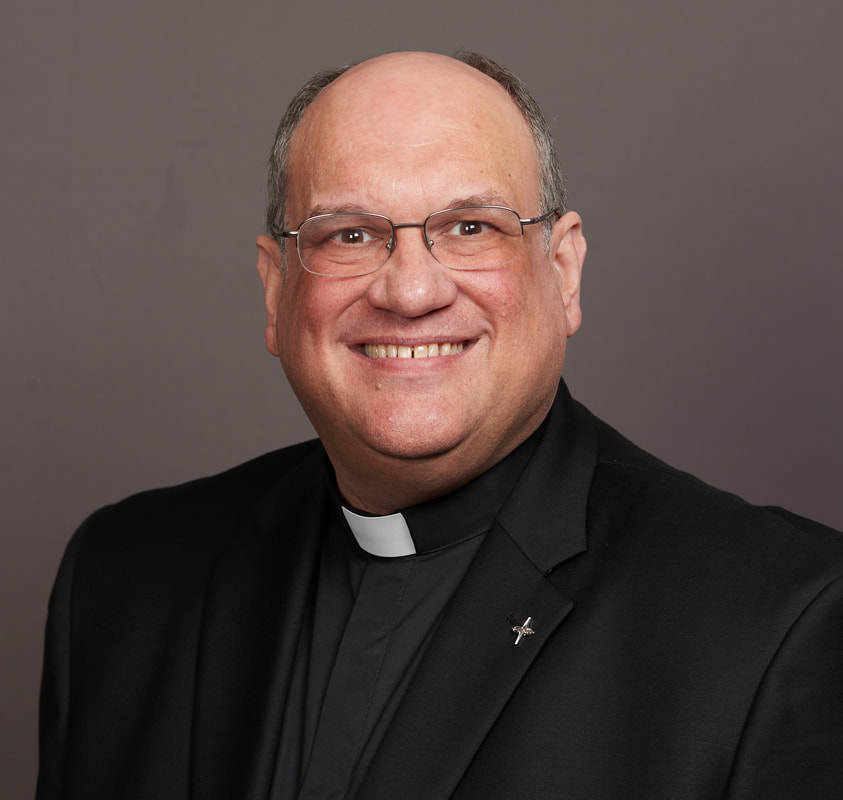

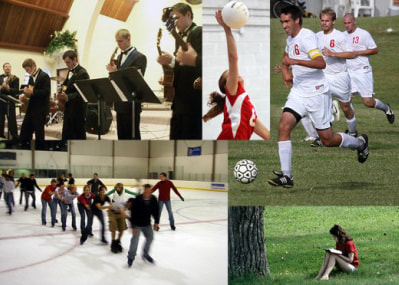
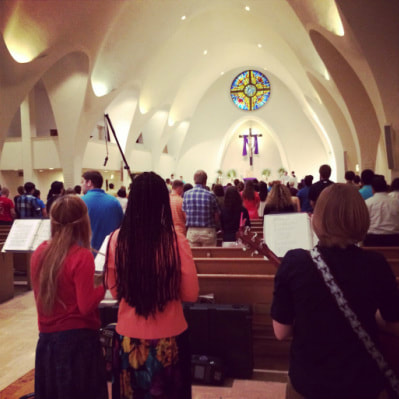

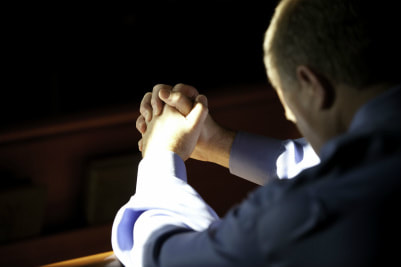

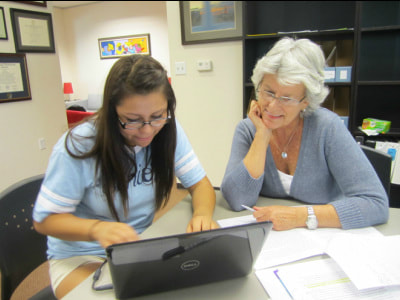
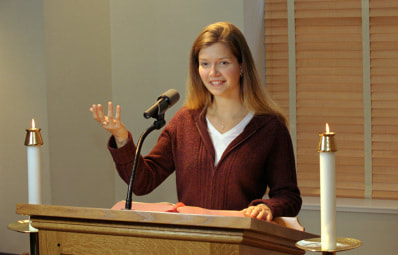
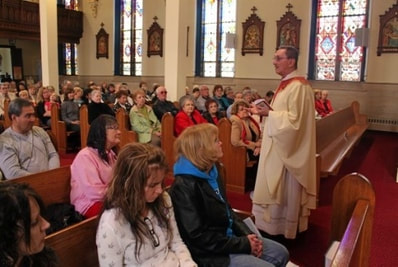
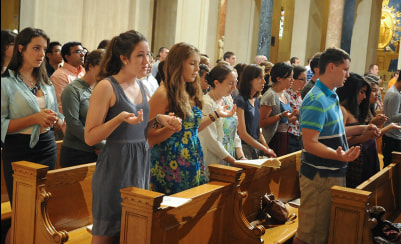





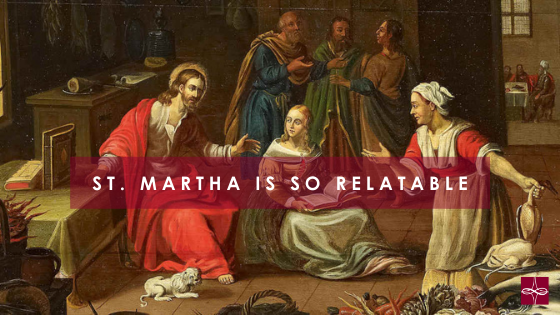

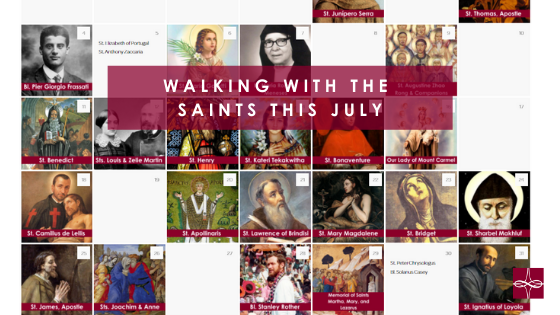
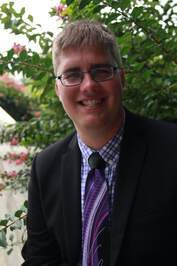


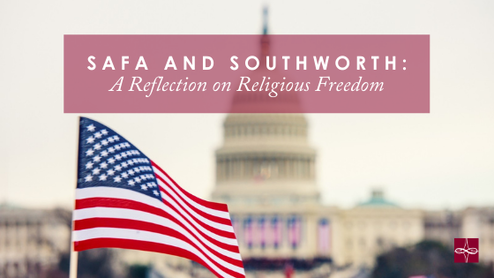
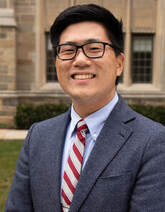
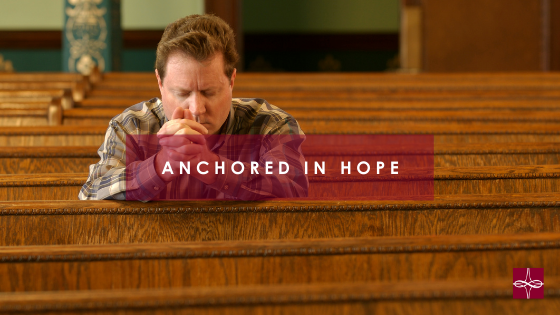
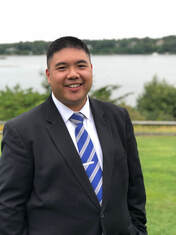
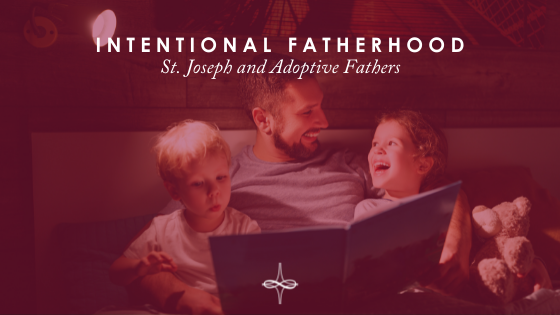
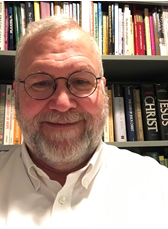

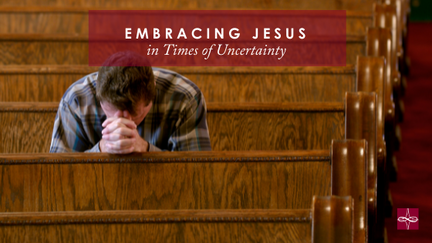
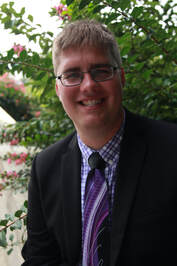
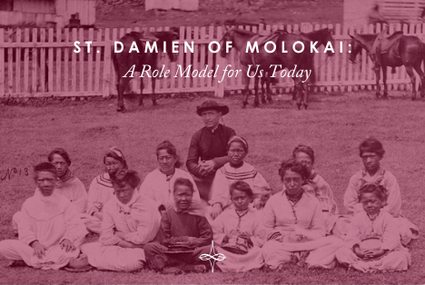

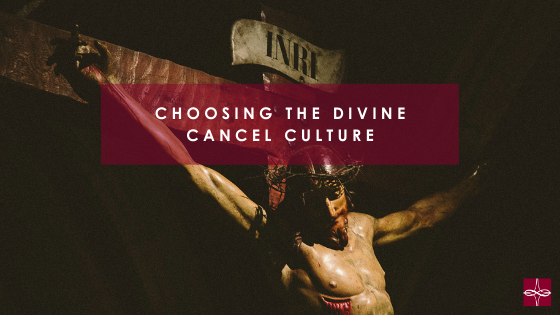

 RSS Feed
RSS Feed